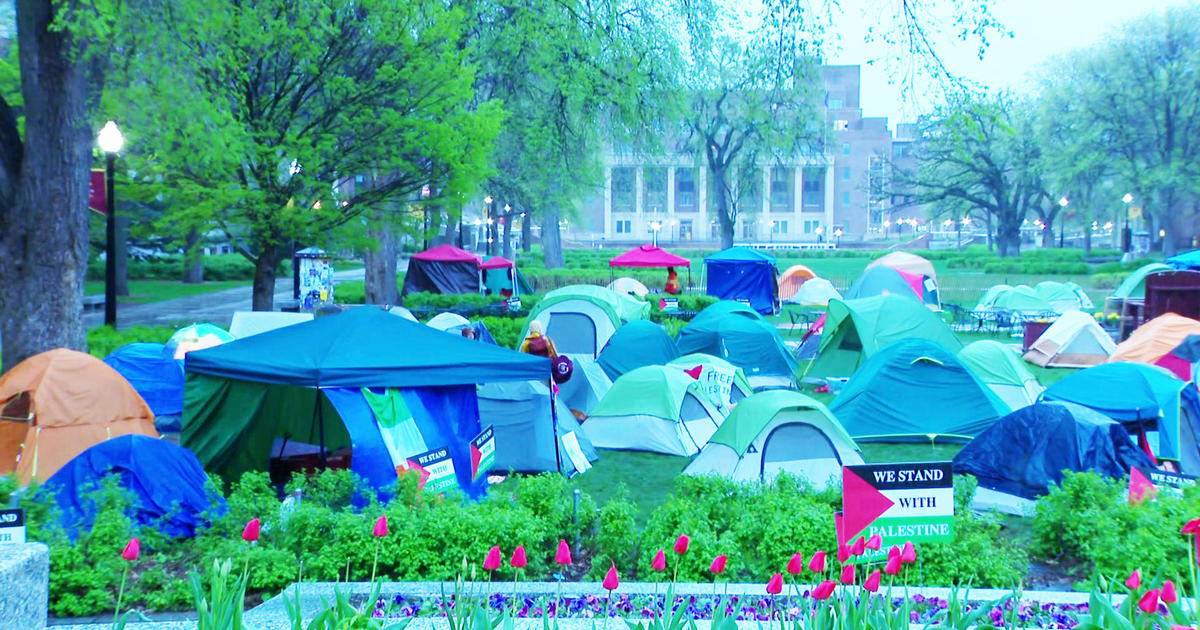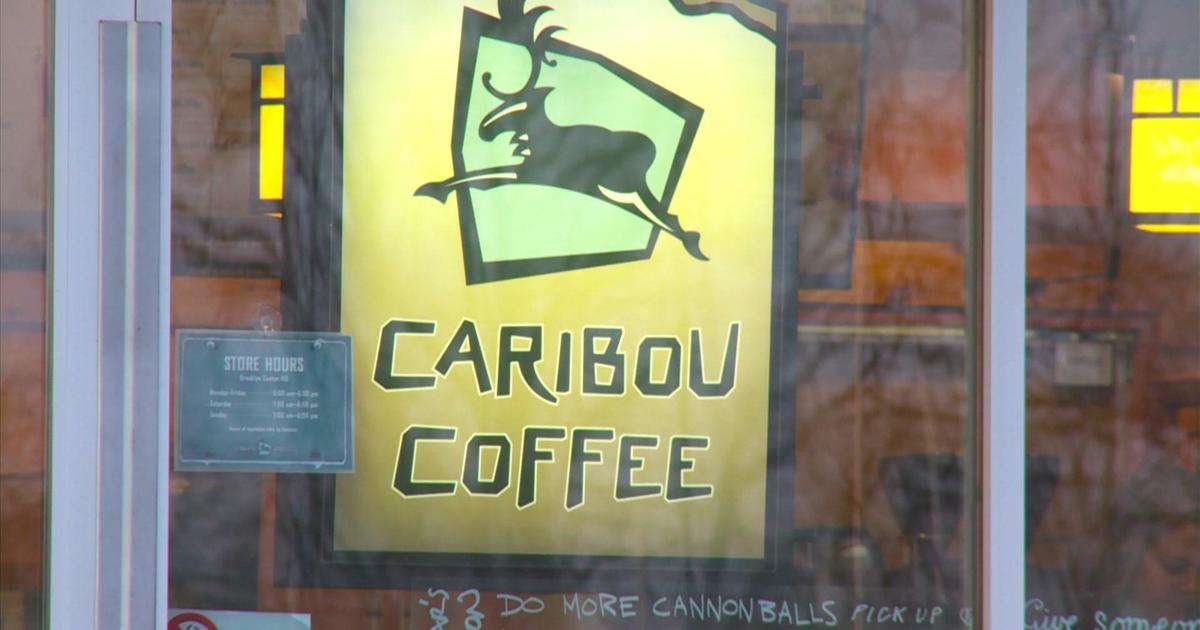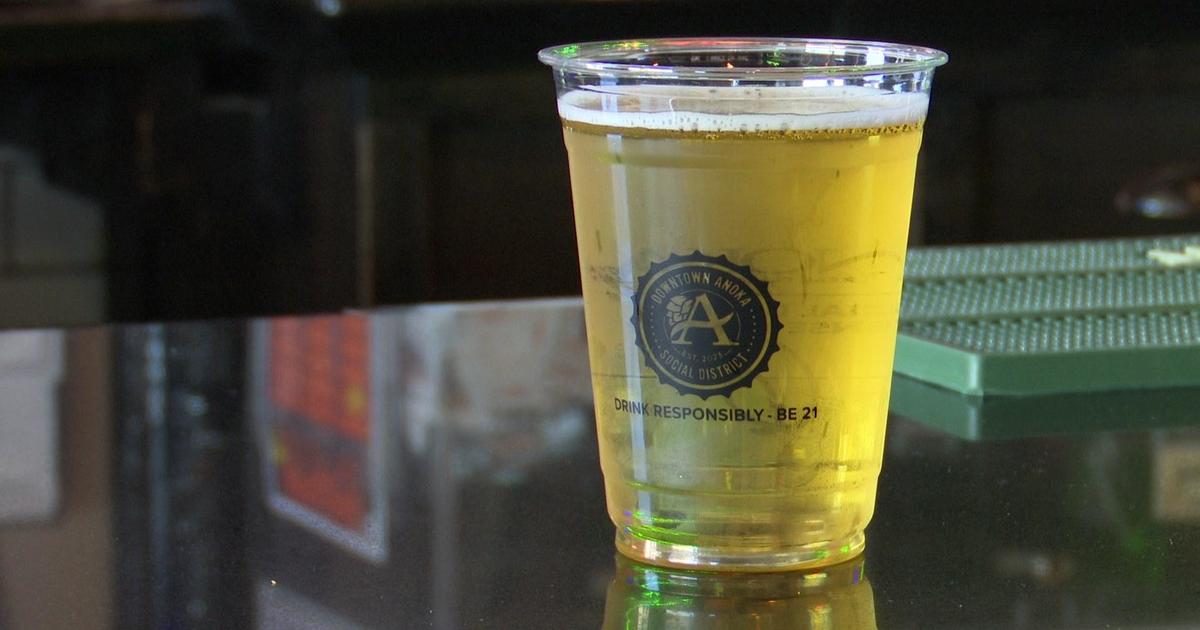Mayor Frey on downtown Minneapolis futures: "Things are changing, we've got to change with them"
MINNEAPOLIS -- Over the last few weeks we've seen some long-standing stores announcing their closures in downtown Minneapolis.
Marshalls and Nordstrom Rack are closing, and The Hilton Hotel and LaSalle Plaza are set to go up for auction. This is all happening as downtown in general is fighting to bounce back from two years of shutdowns and tough financial times.
Mayor Jacob Frey says he has a plan to revive downtown's once famous shopping mecca. He appeared on WCCO's The 4 on Thursday afternoon to talk with John Lauritsen and Jennifer Mayerle. Here is the conversation they had:
Jennifer Mayerle: You know, we were talking about how it kind of depends on where you are in downtown with what you see. I go to Green + The Grain and I see a long line. I go to other places like City Center, IDS Center, and they have empty retail spaces. Even though they might be leased, they're still empty. What is the current landscape of downtown businesses?
Jacob Frey: Well, retail is alive and well, but it is dramatically changing. The old model -- with the massive square footage, multi-story department store -- is a dying model. It's dying in Minneapolis and every city in the entire country, pretty much. But what's not dead is the small and local-oriented business. What's not dead is the entrepreneur that's stepping up in a big and beautiful way and putting in their shop in, say, North Loop. And so what we're looking at doing right now is one of many options that we're going to implement through a workgroup. We've got the best and the brightest experts that are going to be coming together to offer a set of recommendations as to how the city can take the next step. Because here's the thing, the cities that see the most success following this global pandemic are not the ones that are going to cling white-knuckled to what once was -- the old Marshalls, the old Sports Authority, the old Barnes and Noble. The cities that see a big success are the ones that are going to take the next step and kind of run with the times.
John Lauritsen: And that workgroup you're talking about is Vibrant Downtown Storefronts Workgroup. So you're looking at tracking maybe smaller businesses now? Or what would you say as far as that goes, what kind of retail opportunities is the city looking for?
Frey: We're not going to be prescriptive in the outcome, because I want to hear what these experts have to say. They're going to be looking at data from around the country, they're going to be looking at both successes and failures in other cities of similarly-situated size. And then they're going to offer some recommendations from there. But I'll give you one example. If you go to certain areas of Minneapolis and other cities, the areas that are really succeeding are not the one gigantic conglomerate on a block. It's where you have five or six or eight different small and locally-oriented shops on one block, and you walk down the street and you have activity and vibrancy. That's what people want right now. Because here's something else: people aren't buying basic necessities by going shopping anymore. If you're gonna go buy underwear, or a T-shirt or whatever, you're gonna do that online. You're gonna go online, you're gonna get the underwear, the T-shirt. But they do want to have an experience when they go shopping. And you can get that experience when you have a beautiful diversity of use, and a beautiful diversity of shops all on that same street. You go and you have drink, and then you go shopping for some new boots. And then you walk down the way and there's some fun activity, you know. And that's what we want to create in Minneapolis, and that's what we're seeing succeed in other areas of our city.
Mayerle: So how do you do that? How do you get these types of stores to want to come into Minneapolis to invest here? Is it a financial incentive? What kind of things could get people interested?
Frey: The first step is setting up the playing field so that some of these new small businesses can succeed. These small businesses are not going to come in and lease out a 20,000-square foot operation; they don't need that much space, they can't pay the rent on that kind of space. So I think a big thing that I am interested in is maybe one of the options is to break up some of the space that was previously occupied by one very large entity -- like a Marshalls, like a Sports Authority. Nothing against those businesses, but let's just be very real here, the times are changing. And mayors around the country are having to say, "Alright, we got to be blunt here. We've got to be honest with people because what once worked 15 years ago is not necessarily going to work into the future." A lot of these changes were inevitable, but they got expedited by about six to eight years by COVID-19 and remote work and this hybrid model. Things are changing. We got to change with them.
Lauritsen: There's a perception to downtown cut off that note that crime and panhandling along Nicollet Mall and the North Loop have made a difference here. What are your thoughts on that? And what are you doing to address some of that?
Frey: Well, a few months ago we started what is called Operation Endeavor, which was a plan to have both a presence of police officers -- largely through overtime and cross-jurisdictional collaboration -- and getting social workers, just eyes on the street to see what's going on. Now there are many factors associated with a drop in crime, but I can tell you is working. We saw about a 67% drop in carjackings. We saw a 40% drop in calls for service on gun-related issues. We saw about a 20% drop in in gunshot victims. And just crime overall is trending in the right direction. Now, better does not mean good, better does not mean we're done and the issue was taken care of, but things are trending in the right direction. And we've got a whole lot of police officers, social workers, violence interrupters that are out there working their tails off. They deserve a lot of things.
Mayerle: So you say you're doing a lot of work on the public safety front on organizing this workgroup. We know there's experts and that. Is there a way for the public also to give their ideas and how this can help?
Frey: Yes, we want to hear from you. You know, reach out to the Downtown Council. Steve Cramer is going to be heading up as a co-chair of the workgroup. Reach out to my office, let us know what you have to say. And also I'll tell you, if you're out in the public, you have a part to do. Remember all of the things that you love about our extraordinary city and embrace them again. I know a lot of people have been sitting at home, watching Netflix, sitting on their couch for a couple years now. But whether it's that packed, sweaty bar, or it's the crack of the bat over at Target Field, or the Farmers Market on Nicollet, these are awesome things. Remember them, come back, experience them again. They're gonna be here for you.



